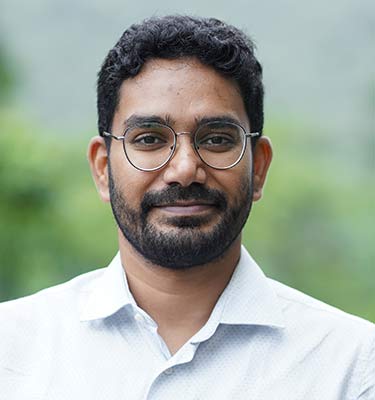
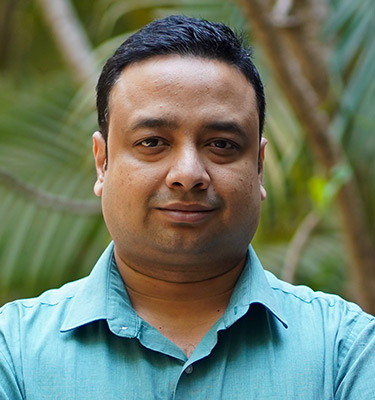
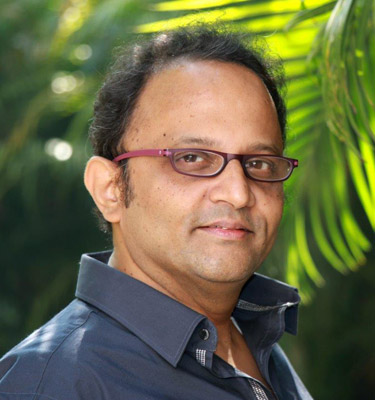
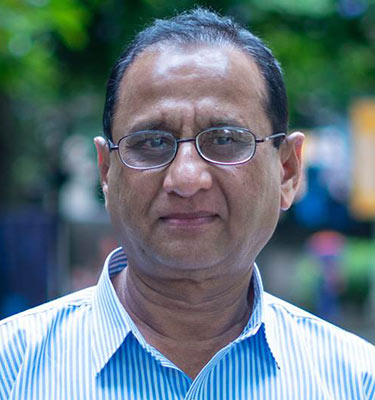
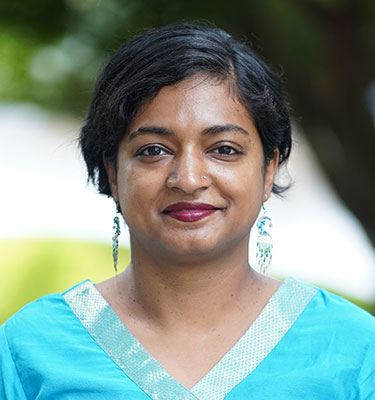
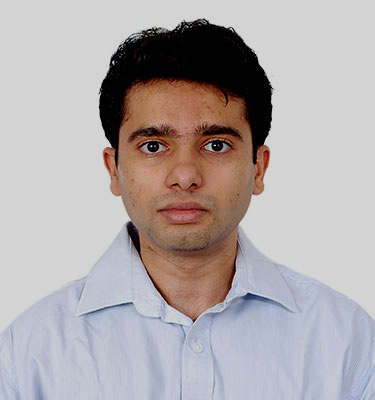

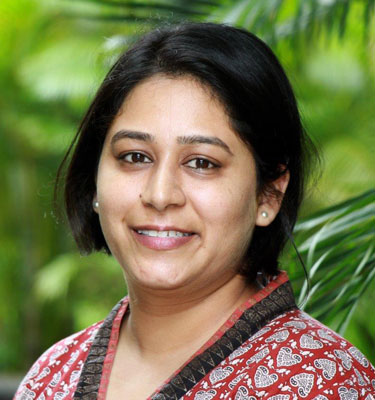
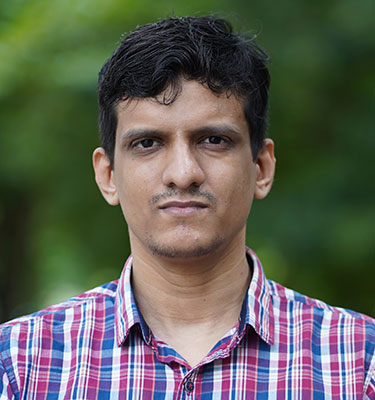
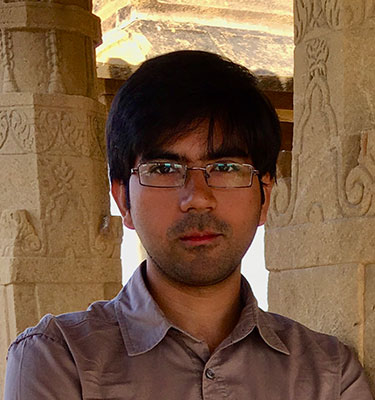
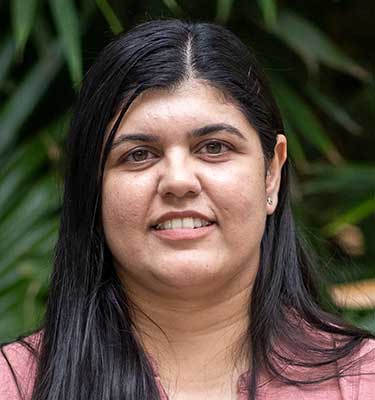
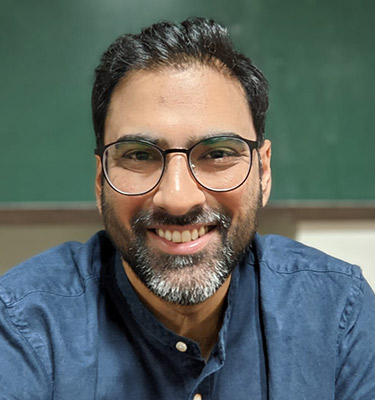

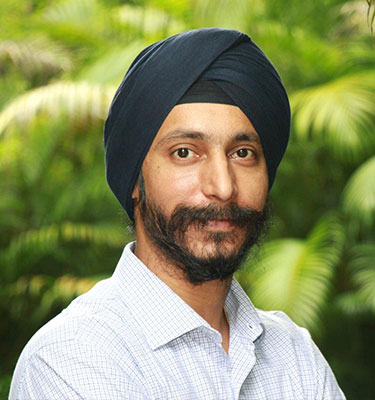
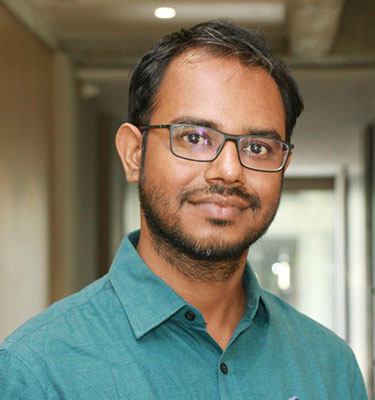
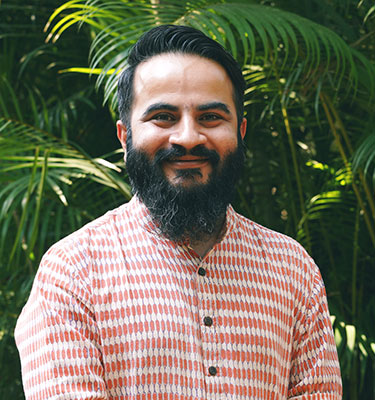
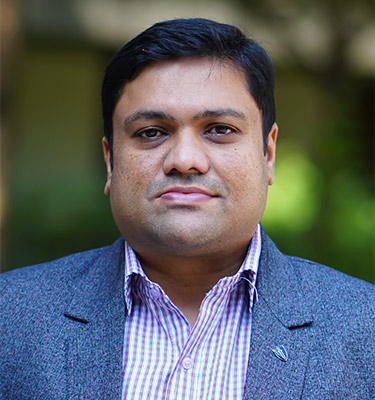
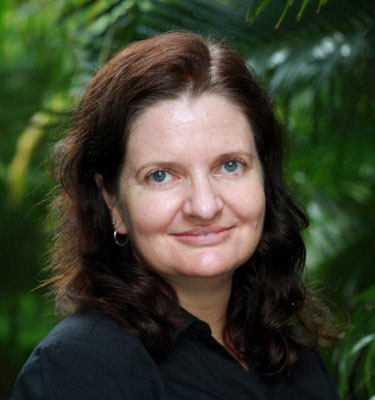

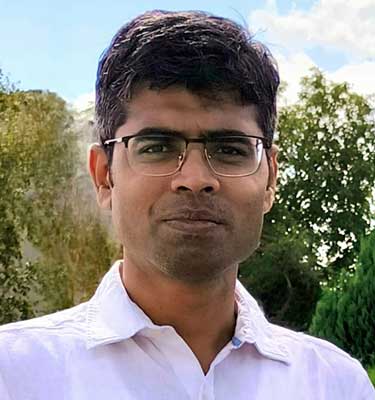
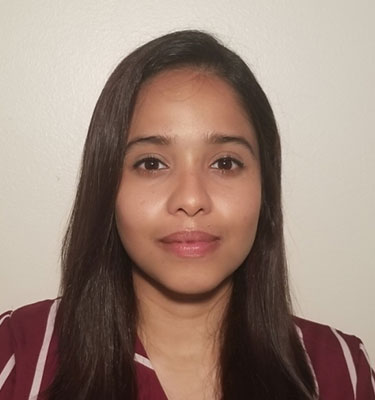
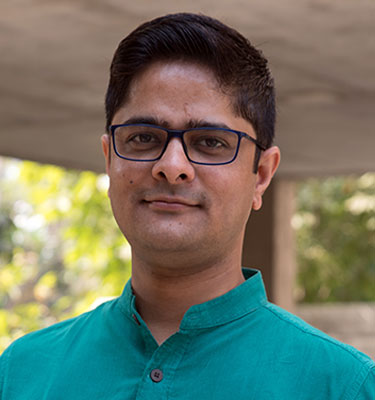
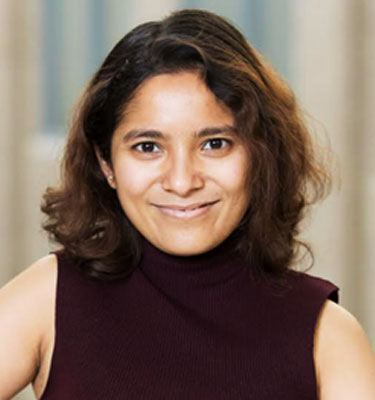
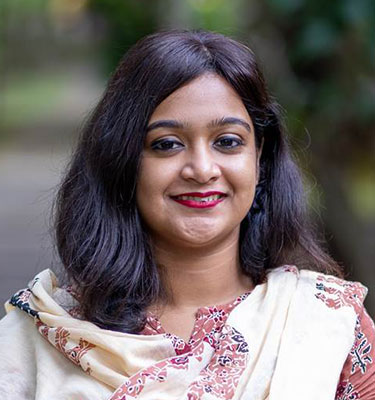
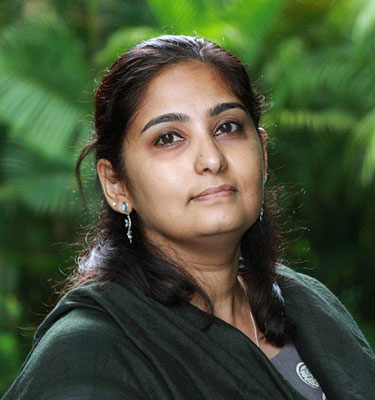
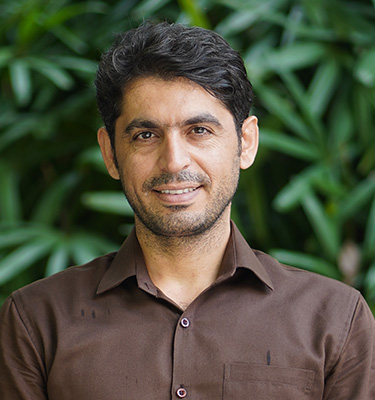
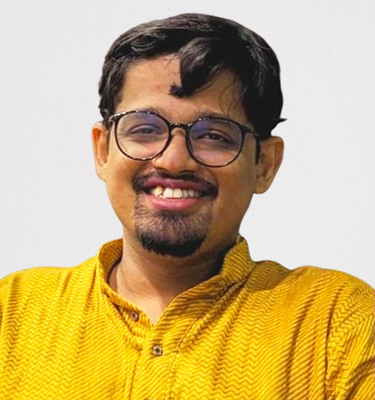
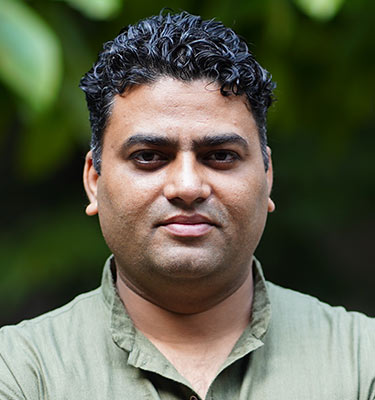
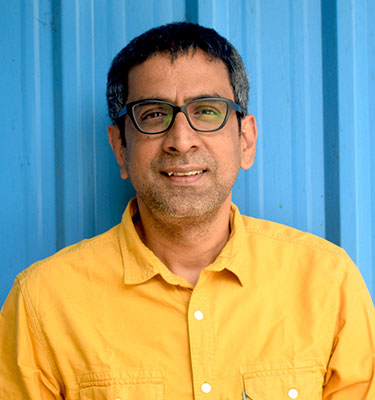
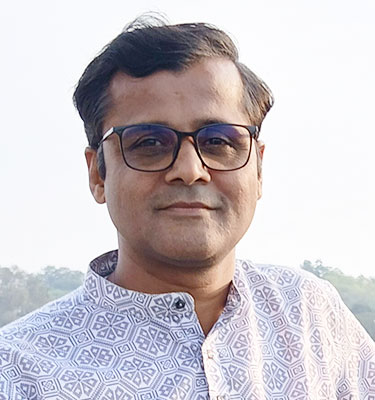

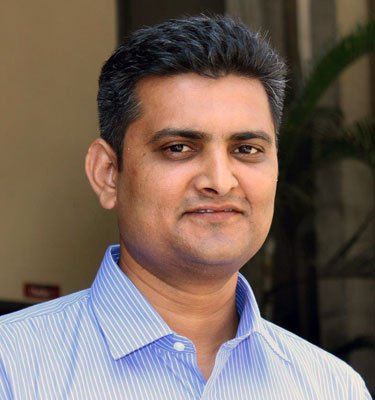
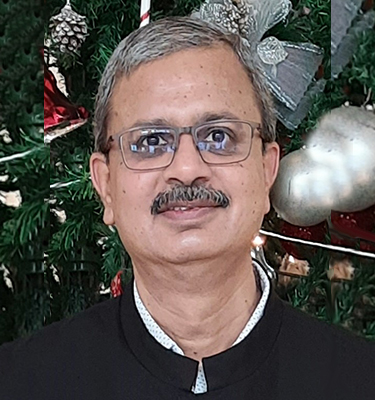
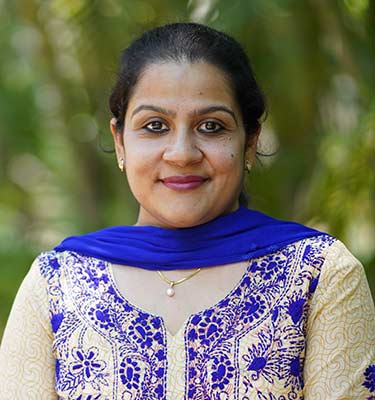
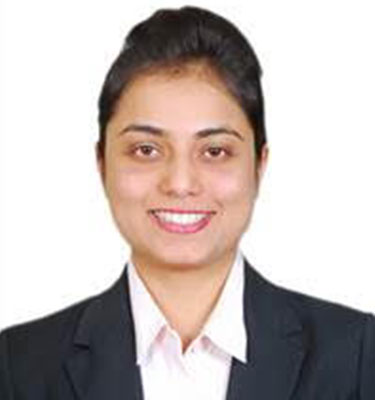
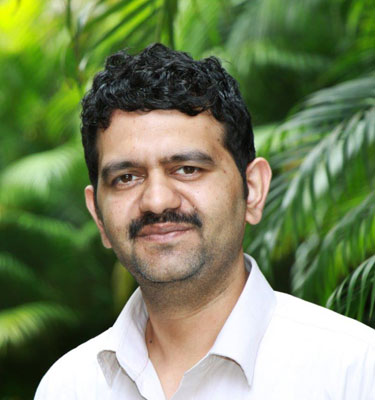
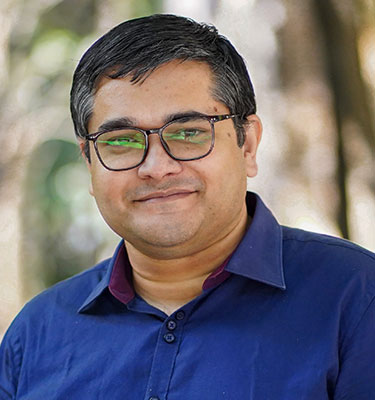
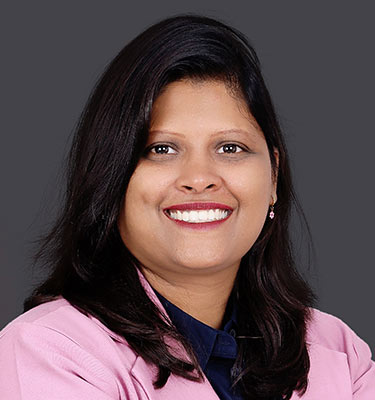
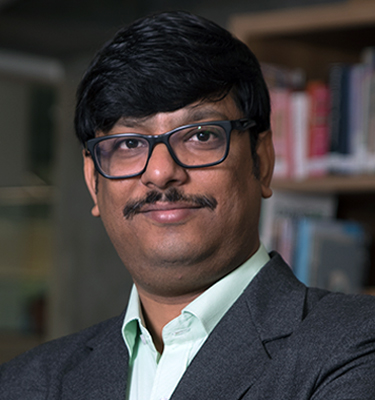
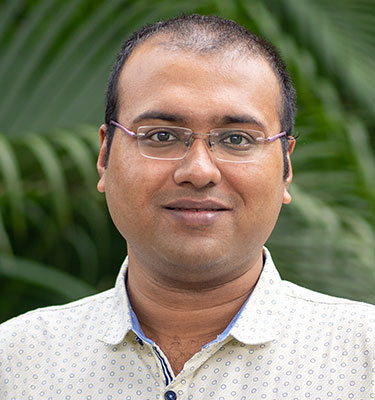
FACULTY

Prof. Balaji Kalluri
Prof. Balaji Kalluri, is an Assistant Professor - Environmental Studies. He earned his Doctorate (Ph.D.) in inter-disciplinary field of Building Sciences from the National University of Singapore. Prior to this, he has completed Masters in Microelectronics engineering from Birla Institute of Technology and Sciences, Pilani Campus and Bachelors in Electronics and Communication engineering from Anna University, Chennai.
He is a systems engineer turned urban scientist, a seasoned multi-disciplinary researcher, a futurist, an innovator, and a passionate design-thinker with professional experience working in several leading academic and industry settings, predominantly across Asia and Europe. His professional interest lies in carrying out fundamental and applied research, engineering development and innovation consulting activities in topics at the nexus of complex urban socio-technical systems, and grand challenges of the 21st-century incld. climate-change, urbanization, sustainability, digitalization, and low-carbon future.
Prior to joining FLAME, has spent 11+ years of professional life (4 years post-doc; 4 years PhD; and 3.5 years post-masters) in diverse workplace environments in Denmark, Singapore and India guiding businesses, organizations and government agencies on several topics. In FLAME, his work will focus on Observing Complex Systems in the Wild, Responsible Design-thinking and Strategic Urban Innovation Management among others. This includes, for example, smart buildings, liveable communities, sustainable cities and responsible digital governance.
“It is imperative that we embrace the wave of technology progression collectively as a society. However, it is equally paramount to swim through the wave equipped with all necessary gears. I believe multi-disciplinary design-thinking is imminent in equipping next-gen professionals with those gears that enable the world to smoothly transition into a sustainable & low-carbon future in a responsible (just) manner”
– Balaji
He brings strong leadership abilities, collaborative and enterprise mind-set with his global consulting experience with SBC (Netherlands), DBI (Denmark) and also leading a couple of research & innovation clusters. For instance, this includes The Collective Voices of Buildings India with partners from IITD, IITB, IITKGP, and Berkeley on a nation-wide mission to strategically digitalize building stocks and decarbonize building sector in India with 2070 carbon neutrality goal in mind.
His passion for education lies in preparing next-generation people and professionals that our society and planet shall need in the future not only in terms of aptitude, skills and competencies, but also most importantly in terms of the attitude.
Some guiding principles of his professional life are the following..
'End of education is character'
'Education is not for living, but for life'
- Sri Sathya Sai Baba
During his spare time, he enjoys volunteering in several forms of social/community service activities including teaching Vedas to adults and human-values to children, community kitchen, serving food, social-care, village clean-up, global parenting among others besides spending time in nature, pilgrimages, and travel.
Publications:
He has published close to 20 peer-review articles in international journals, conference proceedings and book chapters. In addition to the above, he is active in disseminating his scientific knowledge to the world. He has been invited on several occasions to international conferences, research colloquiums, round table discussions, and workshops. Some selected list of his scholarly outcomes are listed here.
- B. Kalluri*, U. Alibrandi, S. Chockalingam, A. Asmone, and S. Manthapuri, “Towards Responsible Design of Low-carbon Buildings: From Concept to Engineering,” ASCE-ASME Journal of Risk and Uncertainty in Engineering Systems, Part A: Civil Engineering, vol. 8(2), 2022, pp. 02522001, DOI: 10.1061/AJRUA6.0001216 (Impact Factor: 1.59)
- B. Kalluri*, C. Chronopoulos, and I. Kozine, “The Concept of Smartness in Cyber-Physical Systems and Connection to Urban Environment,” Annual Review in Controls, vol. 51, 2021, pp.1-22, DOI:10.1016/j.arcontrol.2020.10.009. (5-Year Impact Factor: 4.98)
- B. Kalluri*, B. Seshadri, M. Gwerder, and A. Schlueter, “A longitudinal analysis of energy consumption data from a high performance building in the tropics,” Energy and Buildings, vol. 224, 2020, pp. 110230, DOI:10.1016/j.enbuild.2020.110230 (5-Year Impact Factor: 4.495)
- B. Kalluri*, I. Kozin and R. Taylor, "Towards Modeling Cyber-Physical Hazards in Buildings: Interdisciplinary Approach," 2020 International Conference on Interdisciplinary Cyber Physical Systems (ICPS), Chennai, 2020, pp. 7-13, doi: 10.1109/ICPS51508.2020.00008.
- B. Kalluri*, A. Kivac, & H. Rosenqvist. “A Taxonomy for Cross-domain Fire Hazards in Building Design,” in the Proceedings of the 30th European Safety and Reliability Conference, Venice, Nov 2020.
- B. Kalluri*, A. Kamilaris, S. Kondepudi, K. Harn Wei, and T. Kwok Wai, "Classifying office plug load appliance evens in the context of NILM using time-series data mining," in Proceedings of the 12th REHVA World Congress and CLIMA2016, Denmark, 2016.
- B. Kalluri*, S. Kondepudi, K. Harn Wei, T. Kwok Wai, and A. Kamilaris, "OPLD: Towards improved non-intrusive office plug load disaggregation," in Proceedings of the 1st IEEE International Conference on Building Energy Efficiency and Sustainable Technologies (ICBEST), Singapore, 2015.
- B. Kalluri*, Miller, C., Seshadri, B., and Schlueter, A. (2019). A cyber-physical middleware platform for buildings in smart cities. In Advances in Informatics and Computing in Civil and Construction Engineering, (pp. 645-652). Springer, Cham.
For complete list of publications click here

